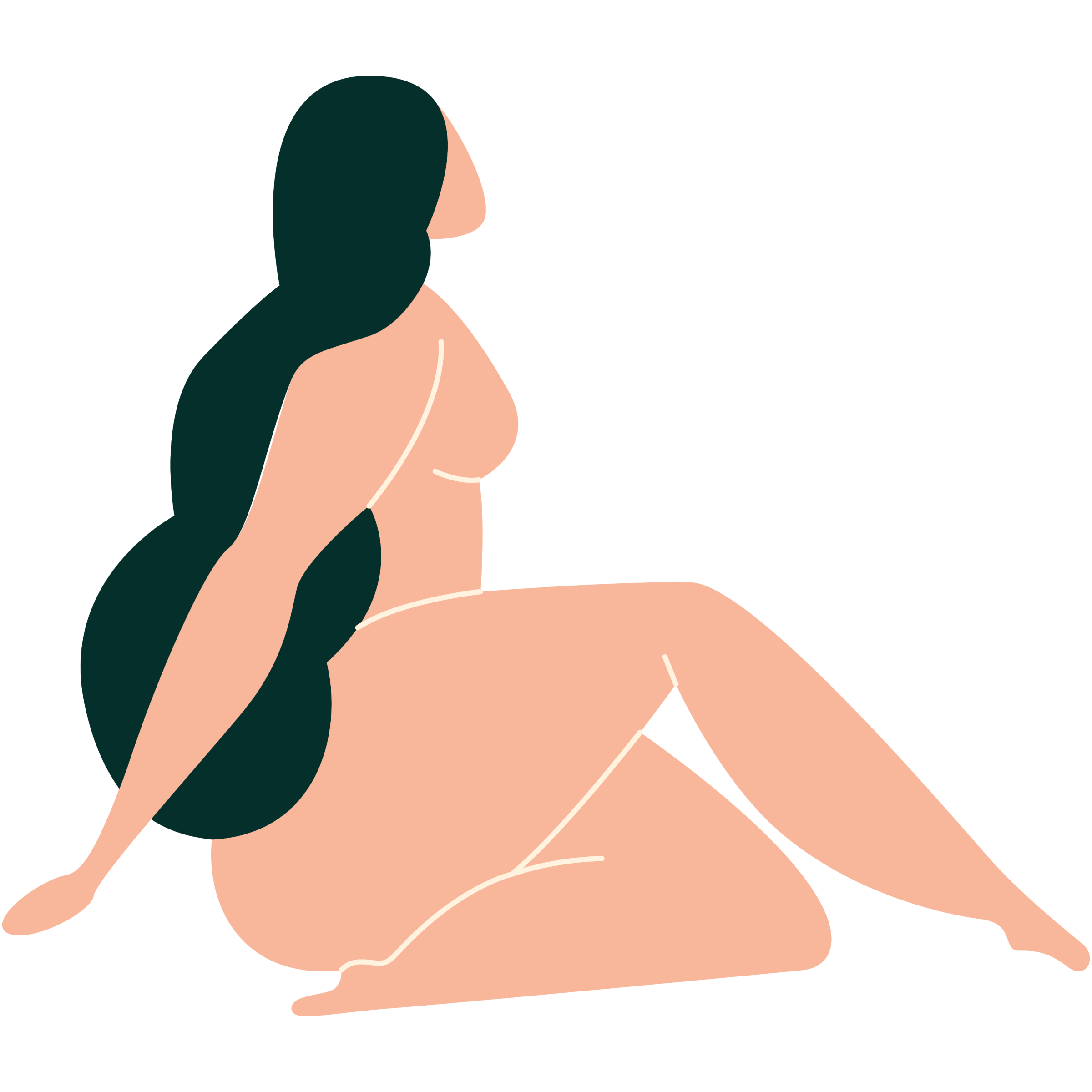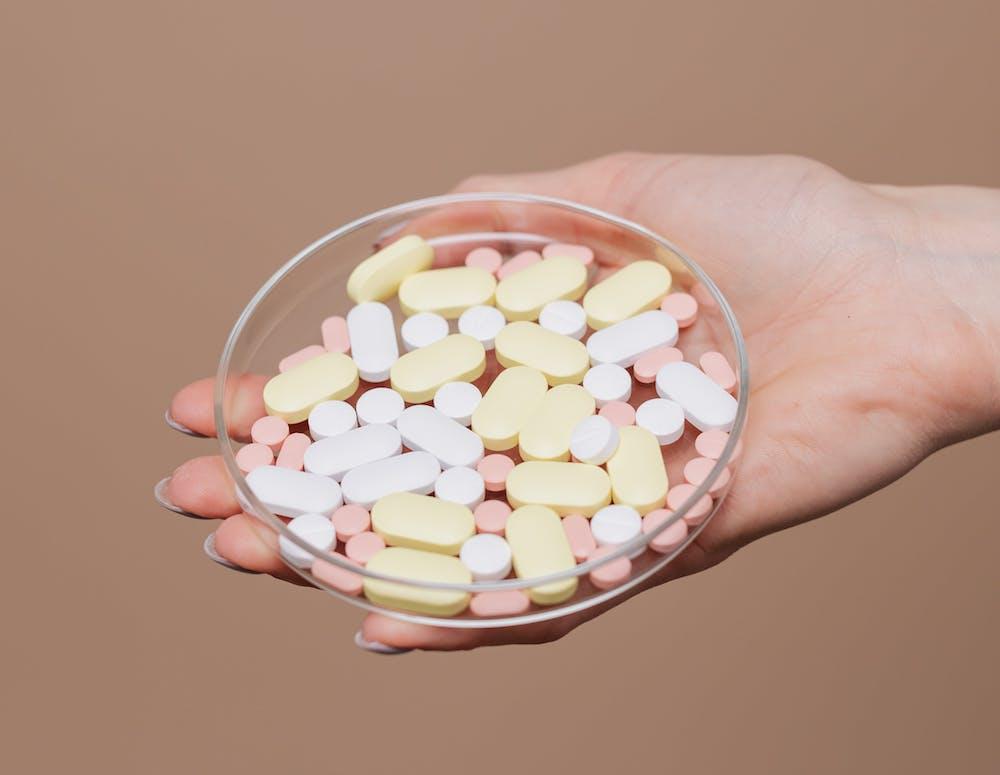
Body
Get to know your body through a better understanding of your anatomy and find the answers to some of your most common questions.

Polycystic Ovary Syndrome (PCOS) affects millions of women worldwide, yet it remains a complex and often misunderstood medical condition.
To gain deeper insights into the intricacies and treatment of PCOS, we had the privilege of sitting down with Dr. Heather Eade, a Dubai-based naturopathic physician with a deep passion for treating complex conditions and chronic diseases.
Before we begin, it’s important to note that a lot of women are told they have PCOS when all they have are polycystic ovaries, which are normally easier to treat. The difference is that the syndrome is usually a quadrat of abnormal weight gain or difficulty losing weight, irregular periods, acne, and unusual facial hair growth. There have to be three out of these four symptoms in order for the woman to be diagnosed with the syndrome. Why patients are being told they have PCOS when they don’t is another question.
Irregular periods, facial hair growth, acne, unexplained weight gain, or very stubborn fat, even with healthy diet and exercise.
It’s helpful to have an ultrasound scan, but not always necessary. When it comes to testing, I like to look at FSH, LH, estrogen, and progesterone. What I’m really looking at are the ratios of estrogen and progesterone. In a perfect world, we get the saliva levels of those hormones, because the results are more stable that way. I’ll look at fasting insulin, fasting glucose, and hbA1c to assess the insulin resistance. I don’t like doing a glucose-tolerance test, because it’s a provoked test; you’re taking a pancreas that might already be unwell and provoking it with a huge dose of glucose. I also like to test the thyroid function just to rule it out as a metabolic barrier, and I like to test cortisol through saliva as well.
That's the ultimate chicken and egg question, because we don't really know. What I have seen clinically is insulin resistance leading to PCOS, but this is just my clinical observation. That being said, it’s important to note that not all women with PCOS have insulin-resistance issues.
The hair and the acne are issues that come about because the cells in the skin and the hair follicles are really sensitive to androgens, or male sex hormones. When ovarian cysts are very active, they can produce a lot of androgens, and, in women, because our cells don't normally see that, they respond to it. That’s why we see hair growth and acne.
Typically, there is an insulin component with weight gain, but one of the hormonal pathways that commonly gets overlooked when accessing PCOS is the role of cortisol, your stress hormone. Insulin and cortisol are very closely tied to one another. So, when insulin goes up, cortisol very often goes up as well, and vice versa. Cortisol promotes fat storage, so even on a healthy diet, it can be really difficult for women with high cortisol to see the insulin-linked part of their symptoms improve until we get control of the cortisol.
Another interesting thing is that, if cortisol is elevated, it often fluctuates quite a bit, and that can cause the fat-storing cells to become slightly inflamed, and an inflamed fat-storing cell will not want to get rid of its fat stores. If I think that’s at play, I’ll test a woman’s cortisol through her saliva.
Ironically, yes. All that putting women on the pill really does is blanket their own hormones. It’s not actually correcting an underlying hormonal imbalance. Women who are asked to go on the pill are often told that it will “reboot” their hormones, and sometimes that does work. That being said, my own PCOS treatment bias is that we try to get to the root of the problem, which is the insulin resistance and the hormonal irregularities.
"All that putting women on the pill really does is blanket their own hormones. It’s not actually correcting an underlying hormonal imbalance."
In my experience, it takes about three months of PCOS treatment to get periods happening regularly again. If a woman is having regular periods already and we’re just trying to get rid of the cysts and trying to get her ovulating again, I say give it one to three months. If she’s not having regular periods, then it might take three to six months to solve the problem. The insulin resistant component is often more lifestyle-related. Usually, even if a women’s glucose-tolerance test comes back normal, I’ll often do work around insulin resistance anyway knowing that there is an increased tendency with PCOS.
Usually, there is an overlap between both. From the hormonal end, it can be a little bit tricky because it's not so much about whether estrogen or progesterone is high; it's more about the ratio between those two hormones. Some women can have an estrogen dominance and still have relatively low estrogen, or vice versa. For some women, on the other hand, it's more of a progesterone issue.
A really easy way to look at assessing PCOS is that the LH-FSH ratio in healthy women should be about 1:1. In PCOS, often we’d see a 2:1 ratio, so that's the first clue on a hormonal profile. The estrogen dominance question is important, even though not every woman with PCOS has estrogen dominance and some women with estrogen dominance don't have PCOS. The reason it's an important question to answer is because excess estrogen gets converted into androgens. So if a woman already has a reason, like PCOS, to have excess androgens, we need to sort out the estrogen dominance if it's present.
That concept is most important if a woman is showing signs of insulin resistance; it’s not necessarily so important when she isn’t. However, cutting out all grains, for example, for a woman who is not insulin resistant but rather estrogen-dominant will impair her ability to clear estrogen. She needs some of the fiber and the grains to clear the estrogen out of her body.
Obviously, in a general sense, exercise is helpful, not just for the insulin regulation but also for hormonal regulation, and more specifically cortisol regulation. Our body relies on a pattern of movement, sleep, meal timings, and so on, to regulate that hormone. The tricky thing is that, if cortisol levels are high, really intense exercise can make that worse. So, in those women, a milder but really consistent form of exercise is more important than CrossFit classes.
It would be ideal if they did, but the problem is twofold. A lot of the doctors that do offer these tests are not always covered by insurance, and a lot of the doctors who don’t offer them are covered.
What I definitely see is that, when we treat the root cause, the likelihood of complete remission is much higher than when we’re obscuring it by taking medicine, contraceptives, etc.
We need to correct the reason it happened in the first place through variables that we can control, like optimizing liver function, fixing insulin resistance, insuring regular activity and a healthy diet, and adding enough fiber to the diet. That being said, those things are hard to do. It’s not as easy as taking a pill once a day.
"The biggest myth out there about PCOS is that it stays with you for life. It doesn’t; it's a reversible condition. I know that there are OB-GYNs out there who would argue with me about it, but my argument is this: when you are not treating the root cause, of course, it’s going to return. Treating the root cause will lead to remission."
There is huge hormonal change during pregnancy and even in the first year postpartum, so often women can heal their syndrome just by having a baby. To simplify things, I would say that the biggest myth out there about PCOS is that it stays with you for life. It doesn’t; it's a reversible condition. I know that there are OB-GYNs out there who would argue with me about it, but my argument is this: when you are not treating the root cause, of course it’s going to return. Treating the root cause will lead to remission.
Not necessarily, especially in the case of women whose PCOS was caused by a hormonal imbalance. If there is an insulin-resistance component, then the woman will always be prone to insulin resistance and will always have to be careful with lifestyle and diet choices. However, just because you've had cysts on your ovaries, breakouts, and so on doesn’t mean that this will stay with you for life.
"There’s so much that women can achieve for their own health when they feel like they are in control of it."
Don’t forget that a lot of women also get “diagnosed” in their teens, when it’s really common to have extra estrogens while the ovaries are still figuring out what to do and getting coordinated. In many cases, this resolves itself in a woman’s early to mid 20s. It’s a rough ride to get saddled with that diagnosis when you’re a teenager with changing hormones. It’s really disempowering. There’s so much that women can achieve for their own health when they feel like they are in control of it.
I haven't seen that this alone works and I think that, of all the variables we’ve mentioned, this is the hardest one to control. Almost all of us here drink water bottled in plastic and, while you can make a choice not to drink water from plastic, at some point that water may have been transported in plastic. It’s a hard variable to control. I would worry more about how well the liver is able to clear those toxins from your body.
Polycystic ovaries untreated often don't cause a problem. If you were to randomly screen 100 women, you'd find cysts in a lot of them, but not necessarily symptoms. Just the presence of cysts doesn't necessarily correlate with any other symptoms. A normal answer to seeing cysts on an ultrasound is to say, “Okay, let’s wait and see what happens with your menstrual cycle. I’ll check you again in three months and, if the cysts are still there, we’ll do something about it. If they’re not there, then great – your body has solved this on its own.”
PCOS left untreated, on the other hand, has links to increasing rates of diabetes and heart disease. Women are a little bit more protected from heart disease than men because we produce estrogen, which is anti-inflammatory. But if you have untreated PCOS and your androgens are high, then the androgens will oppose the estrogen and you lose that anti-inflammatory benefit – hence the increased risk of heart disease.
Yes. Usually, an ovarian cyst is just an unruptured follicle. Normally, when we ovulate, the casing around the follicle opens and it's released and free to get fertilized. So a cyst is when the follicle has not been released. That's why the incidents of twins are a bit more common in women with a history of PCOS, because they have unruptured follicles and then two may rupture at the same time.
No, it’s not. My own style of practice is to always treat the root cause, so when I see a woman with PCOS (the full syndrome) we are still working on regulating her estrogen and progesterone, reducing androgen sensitivity, and promoting liver function, because that’s the primary hormone-regulatory and hormone-clearing organ. If there is an insulin component to someone’s PCOS diagnosis, then we look into treating that with any dietary changes needed to support what we do for the hormonal regulation and insulin tolerance.
That PCOS is not the untamable beast we’ve been told it is.
Did you find the answer you were looking for? Is there something we missed? What did you think of this resource? We want to hear from you.
